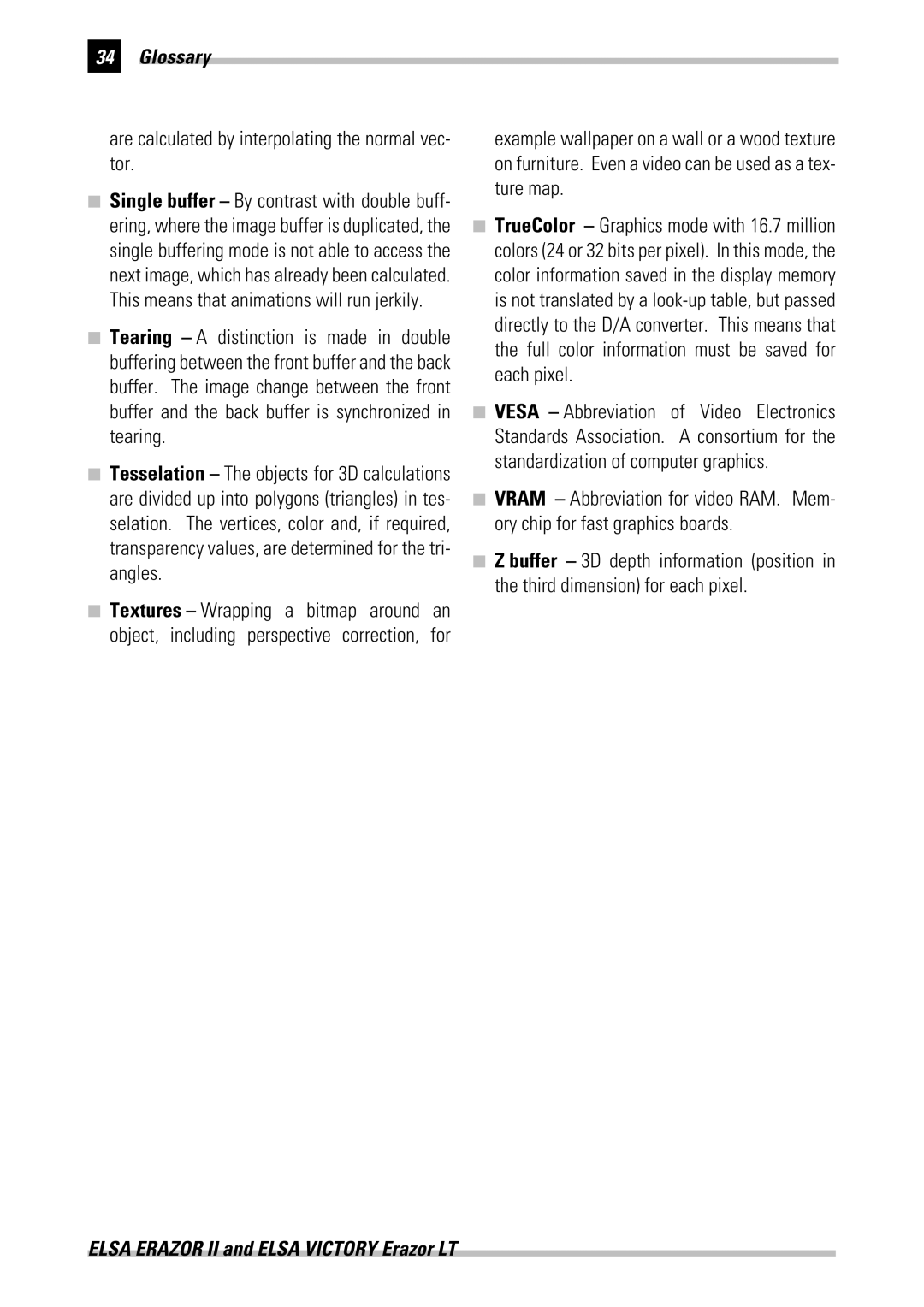
34Glossary
are calculated by interpolating the normal vec- tor.
KSingle buffer – By contrast with double buff- ering, where the image buffer is duplicated, the single buffering mode is not able to access the next image, which has already been calculated. This means that animations will run jerkily.
KTearing – A distinction is made in double buffering between the front buffer and the back buffer. The image change between the front buffer and the back buffer is synchronized in tearing.
KTesselation – The objects for 3D calculations are divided up into polygons (triangles) in tes- selation. The vertices, color and, if required, transparency values, are determined for the tri- angles.
KTextures – Wrapping a bitmap around an object, including perspective correction, for
example wallpaper on a wall or a wood texture on furniture. Even a video can be used as a tex- ture map.
KTrueColor – Graphics mode with 16.7 million colors (24 or 32 bits per pixel). In this mode, the color information saved in the display memory is not translated by a
KVESA – Abbreviation of Video Electronics Standards Association. A consortium for the standardization of computer graphics.
KVRAM – Abbreviation for video RAM. Mem- ory chip for fast graphics boards.
KZ buffer – 3D depth information (position in the third dimension) for each pixel.
